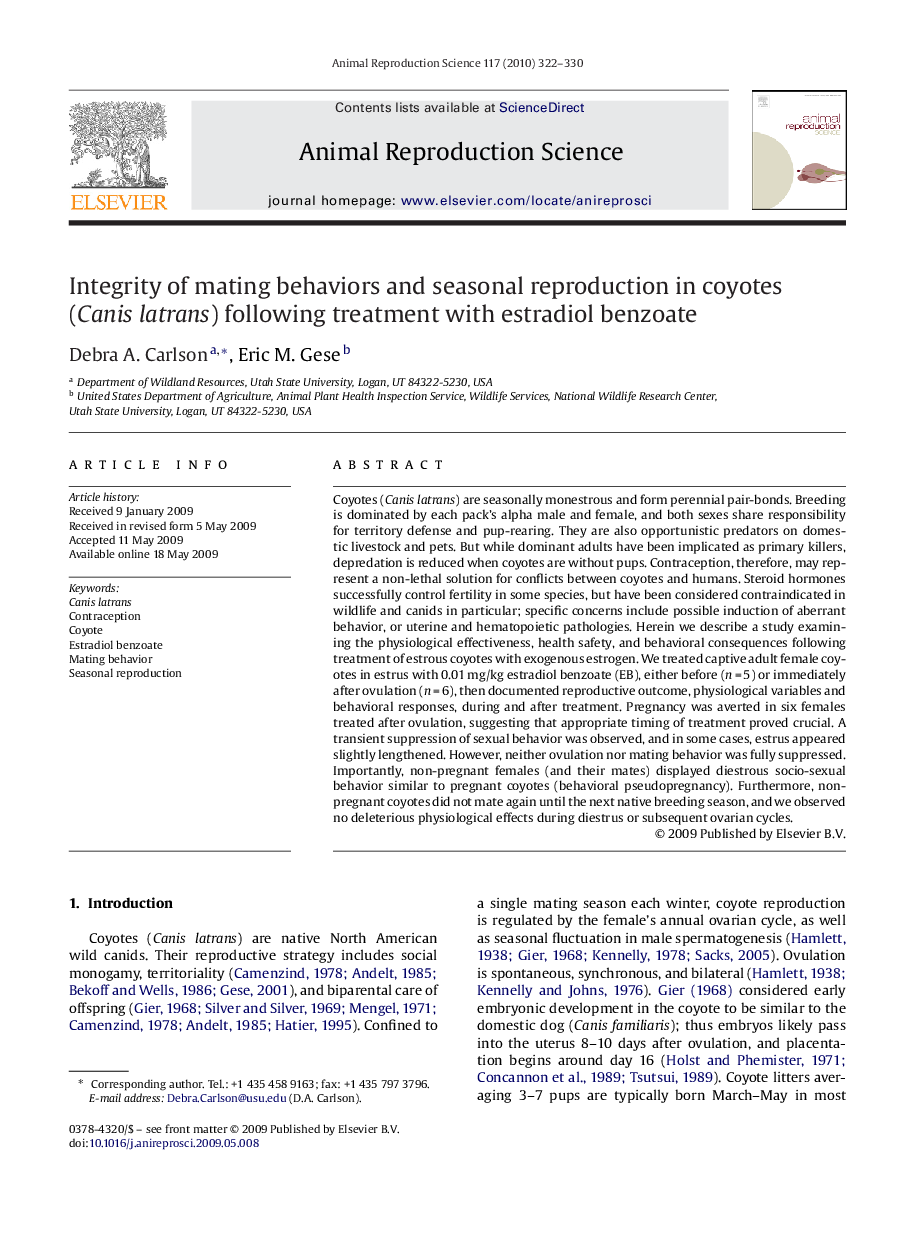| کد مقاله | کد نشریه | سال انتشار | مقاله انگلیسی | نسخه تمام متن |
|---|---|---|---|---|
| 2073908 | 1544787 | 2010 | 9 صفحه PDF | دانلود رایگان |

Coyotes (Canis latrans) are seasonally monestrous and form perennial pair-bonds. Breeding is dominated by each pack's alpha male and female, and both sexes share responsibility for territory defense and pup-rearing. They are also opportunistic predators on domestic livestock and pets. But while dominant adults have been implicated as primary killers, depredation is reduced when coyotes are without pups. Contraception, therefore, may represent a non-lethal solution for conflicts between coyotes and humans. Steroid hormones successfully control fertility in some species, but have been considered contraindicated in wildlife and canids in particular; specific concerns include possible induction of aberrant behavior, or uterine and hematopoietic pathologies. Herein we describe a study examining the physiological effectiveness, health safety, and behavioral consequences following treatment of estrous coyotes with exogenous estrogen. We treated captive adult female coyotes in estrus with 0.01 mg/kg estradiol benzoate (EB), either before (n = 5) or immediately after ovulation (n = 6), then documented reproductive outcome, physiological variables and behavioral responses, during and after treatment. Pregnancy was averted in six females treated after ovulation, suggesting that appropriate timing of treatment proved crucial. A transient suppression of sexual behavior was observed, and in some cases, estrus appeared slightly lengthened. However, neither ovulation nor mating behavior was fully suppressed. Importantly, non-pregnant females (and their mates) displayed diestrous socio-sexual behavior similar to pregnant coyotes (behavioral pseudopregnancy). Furthermore, non-pregnant coyotes did not mate again until the next native breeding season, and we observed no deleterious physiological effects during diestrus or subsequent ovarian cycles.
Journal: Animal Reproduction Science - Volume 117, Issues 3–4, February 2010, Pages 322–330